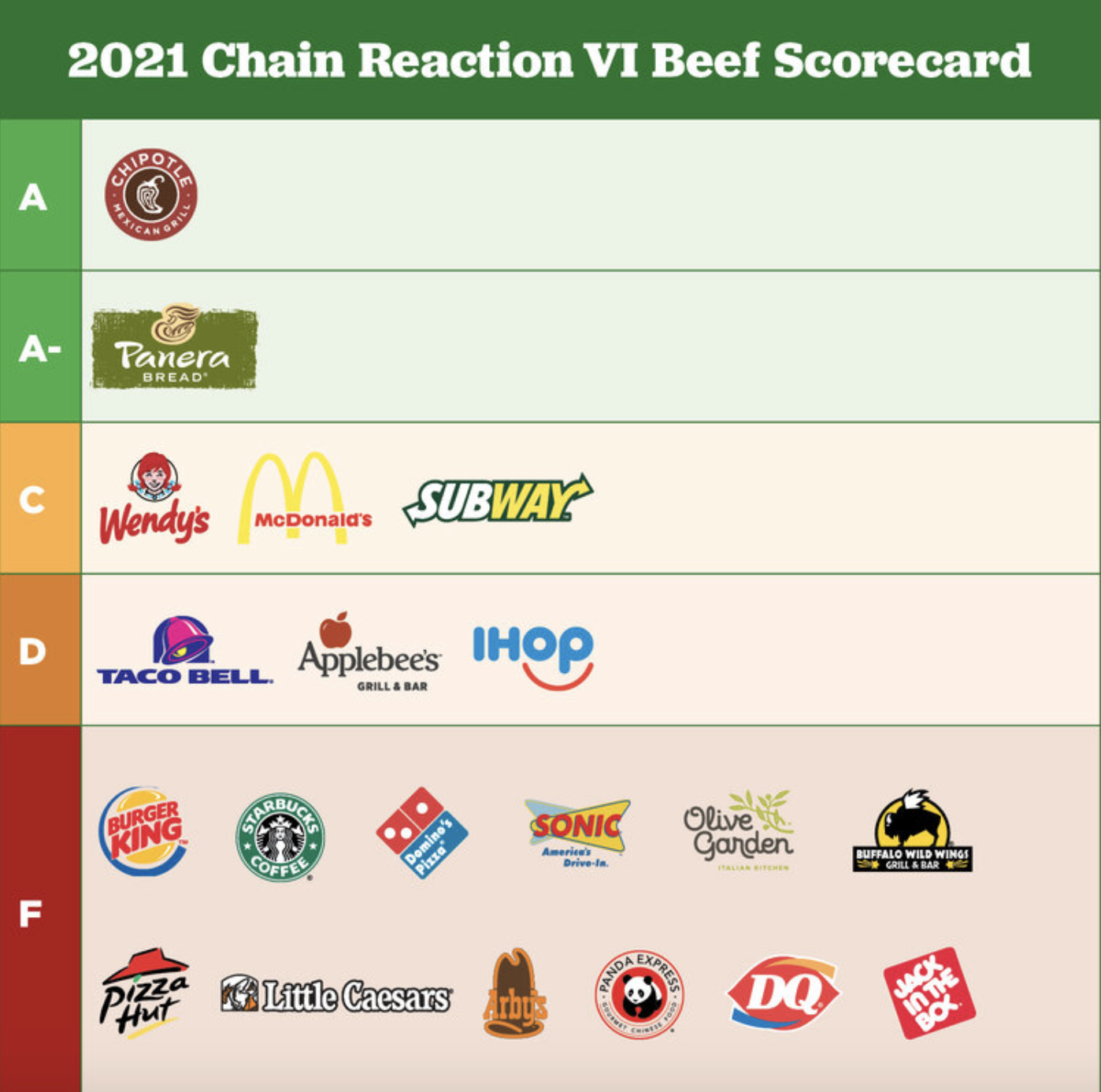



US restaurant chains fail to stop antibiotic overuse in beef supplies
A new Chain Reaction Report finds that many restaurant chains across the US are not doing enough to curb the use of medically important antibiotics in their beef supplies.Most top restaurant chains in the United States have failed to adopt policies to stop the overuse of antibiotics by their beef suppliers, according to the sixth annual Chain Reaction scorecard released by six major consumer, public health and environmental organizations. One notable exception is Wendy's, which announced a new policy this spring to end all routine use of medically important antibiotics in the company's beef supplies by the end of 2030.

While Wendy's managed to boost its grade level, most companies surveyed reported no progress in 2020 on their antibiotics commitments. Most notably, McDonald's, the world's largest beef buyer, failed to meet its own internal deadline to set antibiotic reduction targets by the end of 2020.
"As the last year has clearly shown, prompt, effective action can greatly reduce the impact of a public health threat and inaction can make things much worse. Antibiotic resistance is one of these threats," said Steven Roach, lead author and Safe and Healthy Food Program Director at Food Animal Concerns Trust (FACT). "We applaud Wendy's commitment on antibiotic use in beef and urge the company to implement its pledge as quickly as possible. We also need much broader action from the beef and restaurant sectors if we want to stop the urgent public health crisis of antibiotic resistance."
The Chain Reaction Report was produced by Food Animal Concerns Trust (FACT), the Antibiotic Resistance Action Center at the Milken Institute School of Public Health at George Washington University (ARAC), Center for Food Safety (CFS), Consumer Reports, NRDC (Natural Resources Defense Council) and US PIRG Education Fund.
Leader and lagger restaurants by grade
The report grades the top 20 fast food and casual sit-down restaurant chains nationwide on the antibiotic use policies and practices behind the beef served in their restaurants.

Building solutions by building pressure
"Consumers are concerned about antibiotics losing their effectiveness and want restaurants and meat producers to adopt more responsible practices," said Michael Hansen, Senior Scientist at Consumer Reports. "Fast food restaurants have tremendous market power and can help address our antibiotics crisis by requiring their beef suppliers to stop misusing these life-saving drugs."
Consumer pressure coupled with significant and immediate federal policies can help alleviate emerging novel infections--oftentimes, originating in animals before spreading to people via the food supply.
"The global health threat from antibiotic resistance demands bold government leadership and the US must work harder to curb the enormous overuse of medically important antibiotics in the livestock sector," notes Lena Brook, Director of Food Campaigns at NRDC. "Most urgently, the US should set national targets to reduce the overall use of these antibiotics, especially in beef and pork production, and develop a robust system to track antibiotic use and bacterial resistance at the farm level."
A two-pronged federal approach focusing on reduction targets and tracking of antibiotics has proven successful in several European countries and ought to serve as a roadmap for the current Biden administration. The Chain Reaction report details additional opportunities for state and local regulators and policymakers, investors, and public and private meat buyers to tackle the antibiotic resistance crisis.


